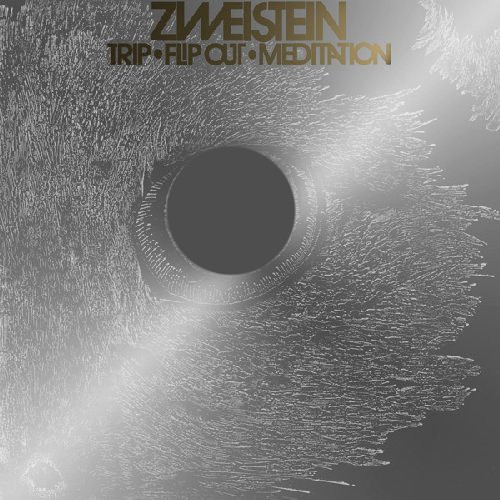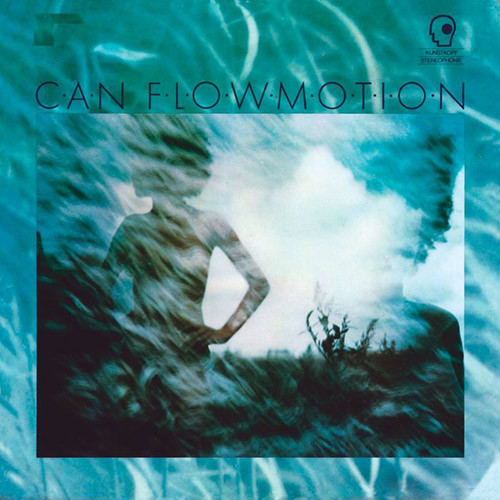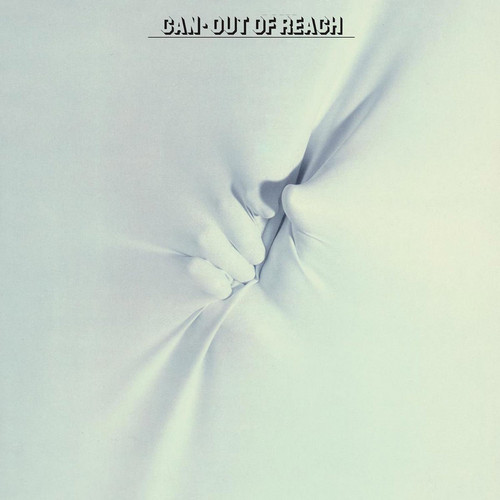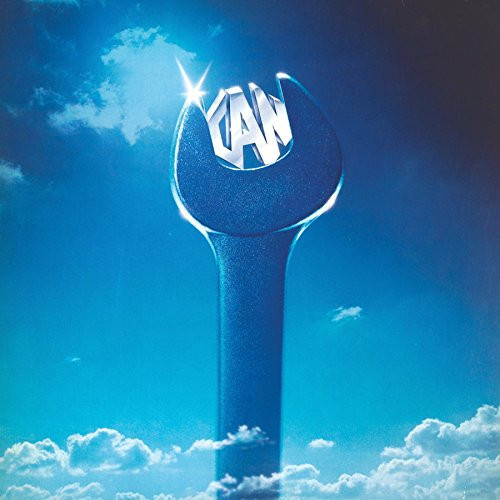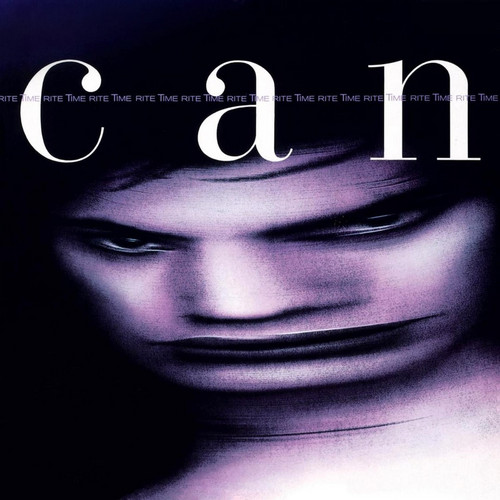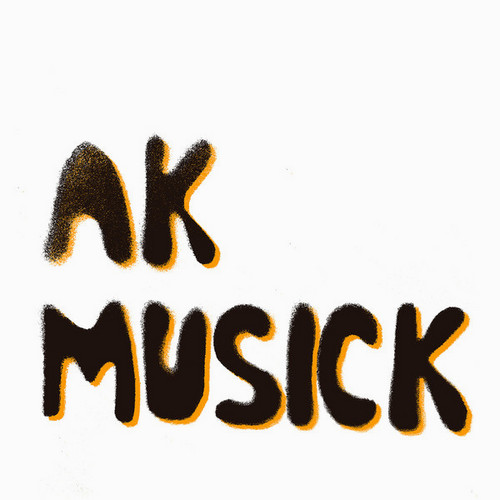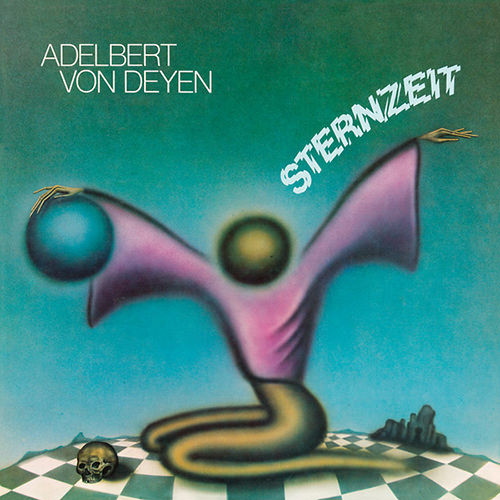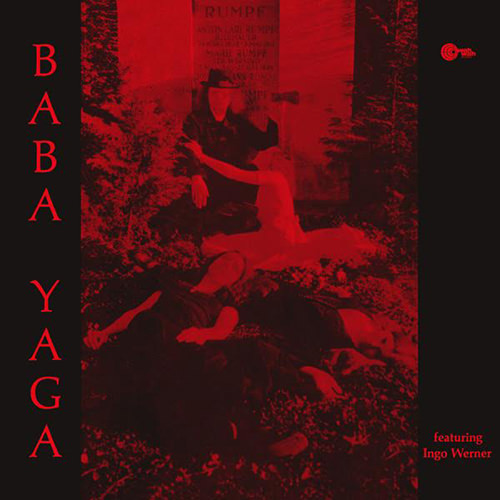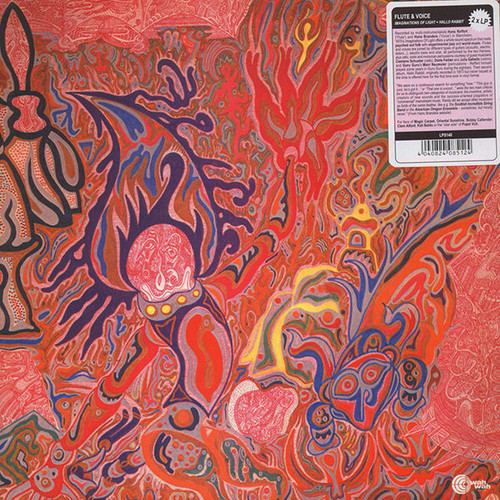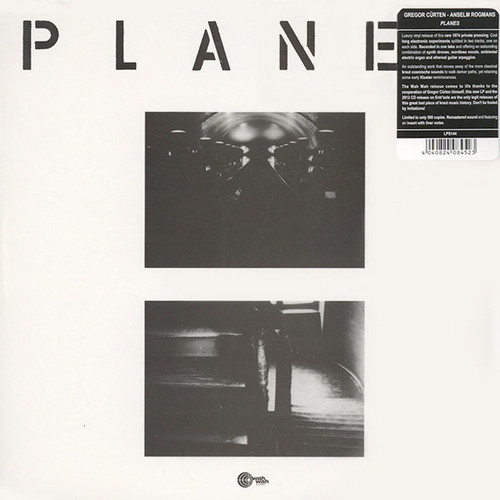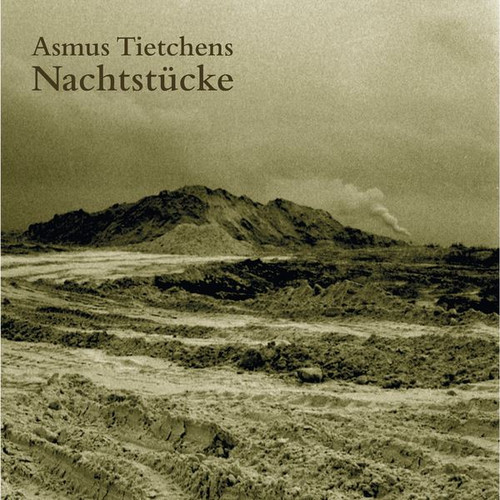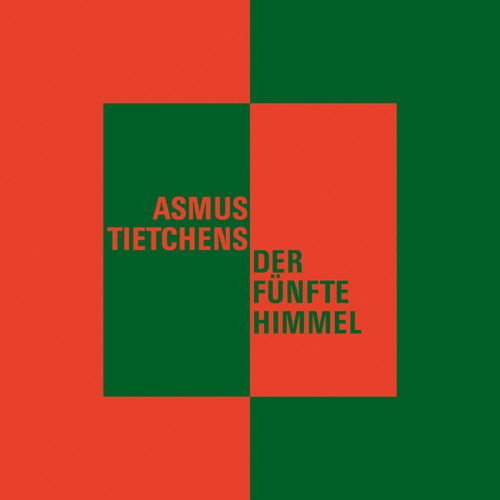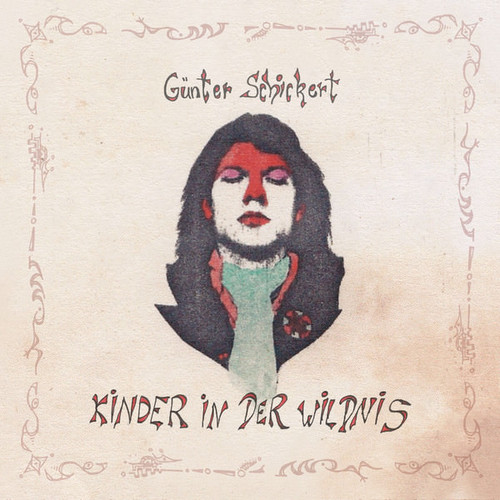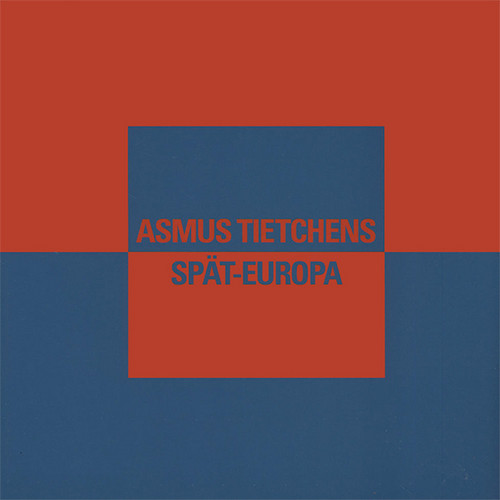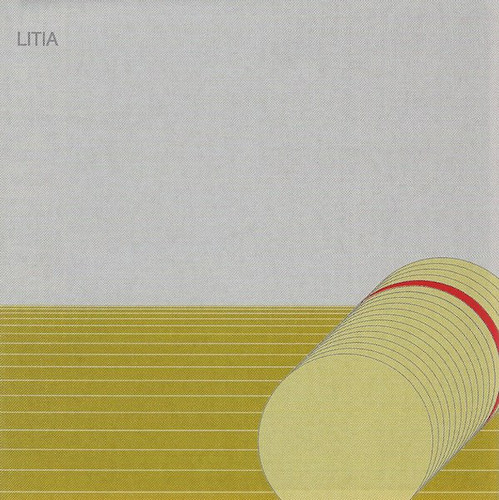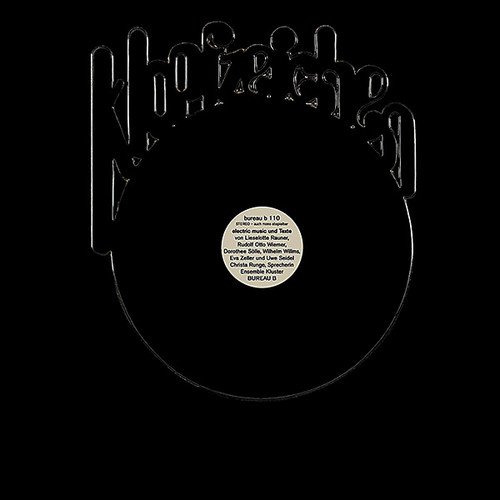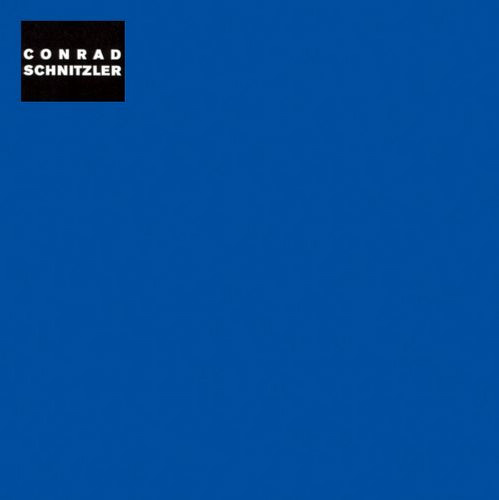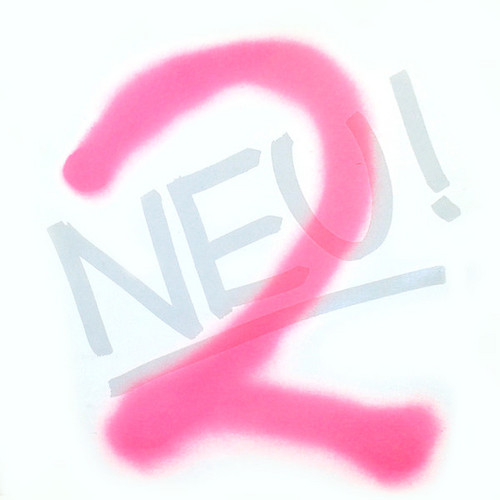Psych /
Trip Flip Out Meditation
Zweistein's trippy Kraut psych experimental masterpiece from Philips Records 1970, arguably one of the most sought after Kraut titles, period! Remastered from the original tapes, absolutely essential! With roughly a half century between us, the revolutionary spirit of the 1960’s is easily lost - watered downed, its energy and truths rubbed clean by the ubiquity of the pop machine. Our contemporary vision of the past rarely resemblances the true zeitgeist of the day. The 1960’s was an era defined…
Flow Motion
The second of Can's three Virgin albums, 1976's Flow Motion, is a divisive record in the group's canon. It was their most commercially successful album (the opening track, "I Want More," was released as a single in the U.K. and actually charted, thanks to its smoothly percolating near-disco groove, which makes it resemble a late-period Roxy Music hit), but many fans dismiss it as the group's feint toward commercial success. That fluke hit aside, the charge doesn't really hold water. There's a ne…
Out Of Reach
All but unknown to most but the most hardcore Can fanatics, 1978's Out of Reach is one of the group's rarest albums. This is due in large part to the fact that bassist Holger Czukay left the band before the recording sessions, and drummer Jaki Liebezeit has a greatly reduced role, leaving most of the rhythm duties to percussionist-come-lately Reebop Kwaku Baah. As on the group's proper swan song, 1977's Saw Delight, new bassist Rosko Gee largely leads the group, and his jazz-inflected playing is…
Can 1978
Mute brought back more Can than any krautrock fan could possibly handle with the 'Can Vinyl Box', which featured seventeen Can records reissued in one bundle; now each record is stepping out on its own. The self-titled 'Can' is the band's eleventh record, released in 1978 and unfamiliar to most. Like 'Out of Reach', little of the music, if any at all, is attributed to the band's founding member Holger Czukay, who stepped back in the writing and composing department. It would be Can’s last album …
Rite Time
'Rite Time’ was originally released in 1986 and has been evaluated as one of the classic Can albums. "An unexpected reunion from Can (made even more unexpected by the presence of original singer Malcolm Mooney, who left the band in 1969), 1989's Rite Time is in large part a return to form for the group, especially when one considers how weak Can's last few '70s albums were. Wisely, the quintet doesn't try to replicate the sound they created over two decades before on albums like Monster Movie. I…
Ak Musick
CD Edition. Mental Experience present first ever reissue of AK Musick, originally released in 1972. Radical, freaked-out sound with hints of free-jazz, improv and avant-garde, AK Musick was an improv collective assembled by clarinetist Hans Kumpf to "make music in a very democratic way". The five players had a classical education but they were also influenced by avant-garde composers like Helmut Lachenmann and Johannes Fritsch. Their only album, AK Musick, was recorded at the famous Bauer Stud…
Sternzeit
LP version. Bureau B present a reissue of Adelbert Von Deyen's debut album Sternzeit, originally released in 1978. Adelbert Von Deyen is a protagonist of the so-called Berlin School (Berliner Schule) of electronic music. On his debut album, he takes his time to develop sound structures, often drifting, floating blissfully into tonal interference. The listener also requires time and patience, but will be rewarded with a Zen-like state of contemplation. Adelbert Von Deyen's musical backstory follo…
Featuring Ingo Werner
After his adventure with My Solid Ground, Ingo Werner formed Baba Yaga. Named after the Slavic folklore character his new adventure seemed to be more a solo project (he plays electric piano, piano, mellotron, synthesizer, organ, clavinet, bassoon and gong, besides being the composer of the music), but it is made with the cooperation of other musicians - most notably Bernd Weidmann who, in addition to singing and playing bass also contibuted with some lyrics. Other musicians in the recording are …
Imaginations of Light + Hallo Rabbit
This fine double LP release combines two full-length albums from the German acid/kraut-folk duo Flute & Voice, which was formed by Mannheim-based multi-instrumentalists Hans Reffert ('Flute') and Hans Brandeis ('Voice'). The debut-LP 'Imaginations Of Light', originally released in 1970 by the legendary Pilz label, features wonderful trippy and progressive folk music with ethnic and even jazzy elements. This LP should appeal to fans of fellow Germans s.a. Witthueser & Westrup and Bröselmaschine, …
Planes
Wah Wah Records proudly presents a luxury vinyl reissue of this rare 1974 private pressing. Cool long electronic experiments splitted in two tracks, one on each side. Recorded in one take and offering an astounding combination of synth drones, wordless vocals, ambiental electric organ and ethereal guitar arpeggios.An outstanding work that moves away of the more classical kraut cosmische sounds to walk darker paths, yet retaining some early Kluster reminiscences.The Wah Wah reissue comes to life …
Nachtstucke
LP version. Pressed on 180 gram vinyl. Nachtstücke owed its publication to former Tangerine Dream member Peter Baumann, who was asked by the French label Barclay/EGG to produce three albums focusing specifically on German electronic music. He was working with Hans-Joachim Roedelius at the time, who had been given a few Tietchens tracks on cassette. When Baumann heard Roedelius play them in the studio during a break in proceedings, they sparked his interest and he met up with Tietchens some time …
Der Funfte Himmel
LP version. Pressed on 180 gram vinyl. Between 1981 and 1983 Asmus Tietchens released four albums on the Sky Records label, fusing rhythmic set pieces and off-kilter sounds into gaudy escapades of saccharine artificiality. The "pseudo-pop" epithet reflected their frequently ironic air. All four records have been reissued by Bureau B in their original form. What remained may be found on this collection. Der fünfte Himmel ("The Fifth Sky") retrieves those pieces which were denied a place on the or…
Kinder in der wildnis
The fact that this album appeared at all in 1983 owes less to Günter Schickert and more to Steven and Alan Freeman, who sought him out for their Krautrock encyclopedia The Crack in the Cosmic Egg. On learning that Schickert had heaps of recordings in his archive, the Freeman brothers proposed compiling an album. Schickert agreed and handed over material which the English YHR label had released in cassette form. Kinder in der Wildnis is a more heterogeneous album than either of its predecessors, …
Spat-Europa
LP version. Comes on 180 gram vinyl. While Asmus Tietchens planned to head off "into the future" ("In die Zukunft") with Biotop (1981), Spät-Europa witnesses his arrival. Released on Sky Records in 1982, the second album in the "Zeitzeichen" phase not only continued in the style of its predecessor, it managed to refine it a little more precisely. Spät-Europa also conveys a banefully distorted pseudo-pop soundscape of disjointed rhythms and oblique melodies, defined by nervous pulses, cool alacri…
Litia
Fifth part in the ongoing re-release series of all early vinyl albums by Tietchens on CD. This one from 1983 marks the end of his Sky 'phase' and was the last to feature his very own version of 'Synthesizer Pop Music' for some time (he'd only return to this music with the release of his Hematic Sunsets albums in the late 1990's). The CD also feat. the rare 'Rattenheu' 10 only release plus one unreleased archive track and comes in a transparent jewel-case with full colour poster booklet feat. a r…
Schwarz (Eruption)
LP version. Comes on 180 gram vinyl and includes download card for the album. The official Konrad Schnitzler discography lists Eruption, released in 1971, under the title Schwarz, as the first Schnitzler album. In actual fact, Eruption is the third and final LP by the group Kluster, following Klopfzeichen (BB 110CD/LP) and Zwei Osterei (BB 111CD/LP). The line-up printed on the labels leaves no room for doubt. Unlike the two previous albums, Eruption was not issued by the Schwann Verlag, but by t…
Uberfallig
180 gram LP version. Bureau B reissues Günter Schickert's album Überfällig, originally released in 1979 on Sky Records. "No sooner had electronic music broken through in Germany, principally aligned in the two schools of Düsseldorf and Berlin, than Günter Schickert also began his first musical experiments. Although GAM, the group he founded in 1973, did not then release a record, he did issue his first solo effort, Samtvogel, a year later -- an album which was eagerly snapped up and re-rele…
Klopfzeichen
180 gram vinyl version. Imagine finding a message in a bottle, forty years after it was dispatched. That is what it feels like when you listen to Kluster's Klopfzeichen for the first time, mysterious, hard to decipher, a relic of a time long since passed. The handwriting is archaic, barely legible, the complex contents only falling into place when examined through the light of historical context. Klopfzeichen is an incredibly important release for the time in which it appeared (1971), an …
Blau
P version on 180 gram vinyl. On the Red Album Rot, Conrad Schnitzler laid down the direction his musical artistry would take. His second solo , The Blue Album Blau, originally released in 1974, offered confirmation of his intent. Maybe the "Red" and "Blue" tracks were recorded in the same session. The structure, sound and timbre of both LPs are so similar as to suggest that this was the case (an unverified assumption nevertheless!). Far more important than this historical pedantry is the fa…
Neu! 2
NEU! was/is/will be a big deal in the history of 20th century music. They laid the foundation for scores of musicians who followed them. But why were Neu! so great? Part of their appeal lies in the fact that their music was so simple, so natural and so easy to listen to and absorb. Each of their pieces draws you in with its own unique mood. The music is emotive in so many different ways: the icy melancholy of Weissensee and Leb'wohl, the tranquil yet sinister brooding of Im Glück, the rage and s…
